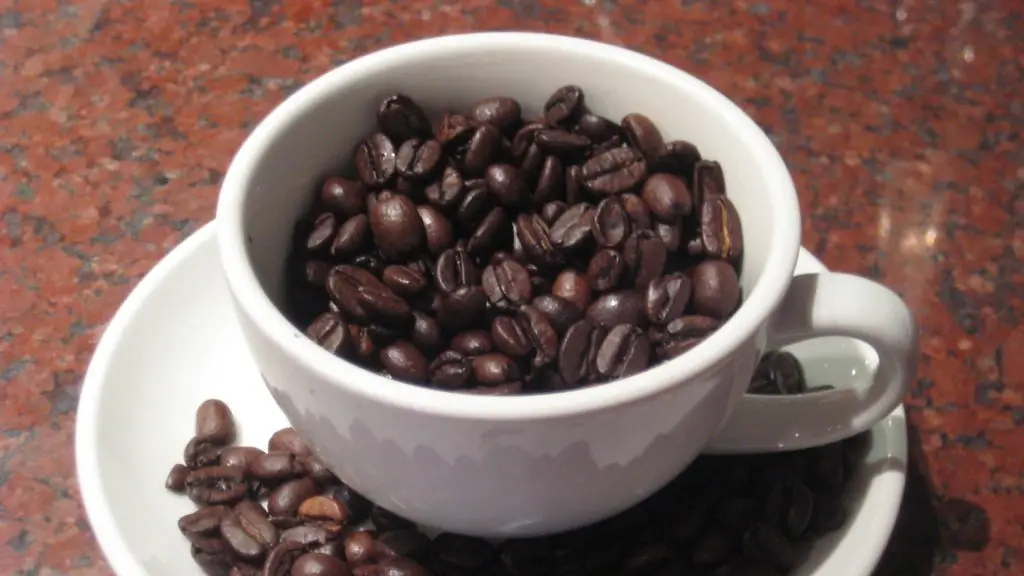Understanding Coughs
Coughing is a common symptom of many respiratory illnesses, but it can also be a sign of other illnesses like heart and digestion issues. According to the American Lung Association, coughs are typically caused by an inflammation of the larynx, laryngeal mucosa or trachea, as well as by an allergic reaction or infection. Many different illnesses, including the common cold and the flu, can cause a cough.
When the body is fighting off an infection, coughing is a natural defense system that helps to expel toxins and irritants from the body. Coughing can help to clear the lungs of mucus and other debris, providing relief from chest congestion. Although coughing is usually a normal and necessary process, it can become persistent and interfere with many day-to-day activities, such as sleeping and eating.
Does Coffee Affect a Cough?
Coffee can be a stimulant that can make coughing worse, as caffeine is a known trigger for inflammation in the airways. According to a recent study published in the Annals of the American Thoracic Society, the relationship between coffee consumption and coughing is complex and largely depends on the individual and the underlying cause of the cough.
For instance, individuals with asthma or chronic obstructive pulmonary disease may find that coffee consumption aggravates their condition, leading to increased coughing. However, individuals with a viral-related cough may find that coffee may help to reduce coughing, providing relief from chest congestion.
In either case, it is advisable to consult with a medical professional to get an accurate diagnosis and receive tailored advice regarding the potential benefits and risks of consuming coffee when experiencing coughing symptoms.
Coffee and Other Beverages
Most beverages that contain caffeine, such as coffee, tea and energy drinks, can potentially aggravate coughing and chest pain. However, many other drinks provide relief from coughing, such as warm water with honey, non-alcoholic beverages, clear soups and herbal teas. These beverages provide moisture and hydrate the airways, making it easier to cough and expectorate mucus from the respiratory tract.
That being said, it is also important to note that caffeinated beverages have a diuretic effect, which can cause dehydration and worsen existing coughing symptoms. Thus, it is important to drink plenty of water when experiencing coughing symptoms, especially when the symptoms tend to persist for long periods of time.
Preventing Coughing Pre and Post Coffee
In order to reduce the frequency and severity of coughing associated with the consumption of coffee, it may be beneficial to avoid drinking coffee within an hour of experiencing a coughing episode. Dust, mites and smoking can also trigger and worsen coughing symptoms, so it is important to take measures to reduce exposure to such triggers.
In addition, drinking plenty of water and getting enough rest can help to reduce coughing and chest congestion associated with drinking coffee. It is also important to note that smoking, especially in combination with coffee consumption, can worsen existing coughing symptoms.
Alternative Coughing Remedies
Aside from the aforementioned measures of prevention and management, there are several natural remedies that can help to reduce coughing. For instance, essential oils such as eucalyptus oil, peppermint oil and tea tree oil can be used to reduce coughing. Essential oils can be inhaled directly or diluted in a carrier oil and applied topically to the chest and neck area.
Honey is also effective in reducing coughing and chest congestion. It is thought that honey helps to soothe the throat, reduce inflammation, and thin mucus. It is also believed that honey has antimicrobial and immunological properties, thus providing relief from coughing symptoms.
Over-the-Counter Cough Treatments
Over-the-counter (OTC) cold and flu medications can also provide relief from coughing symptoms. These medications typically contain a combination of active ingredients, such as pain relievers, decongestants and expectorants. Pain relievers and decongestants help to reduce fever and chest congestion, whilst expectorants help to thin mucus, thus making it easier to cough up.
Although OTC medications provide relief from coughing, it is important to be aware of the potential side effects associated with these medications, such as dry mouth and drowsiness. Therefore, it is advisable to read the label carefully and take the medications as directed.
Inhaled Cough Treatments
Inhalers provide relief from coughing by delivering medication directly to the airways. Inhalers are used to deliver medication such as bronchodilators, anti-inflammatory drugs and steroids. These medications work by relieving chest congestion and reducing inflammation in the lungs.
Inhalers can be used to treat many types of coughing, including coughing associated with asthma and chronic obstructive pulmonary disease. It is important to note that inhalers should be used as directed and only after consulting with a medical professional.
Cough Suppressants
Cough suppressants are medications that are designed to reduce coughing. Cough suppressants are typically available as syrups or pills and work by inhibiting the urge to cough. Side effects may include dizziness, drowsiness and dry mouth. Therefore, it is important to read the label of any cough suppressant carefully and take the medication as directed.
Role of Antibiotics
Antibiotics may be prescribed by a medical professional to treat bacterial-related coughing. Examples of these medications are amoxicillin and cefuroxime. Antibiotics should be taken as directed, and it is important to note that these medications cannot be used to treat viral-related coughing.
Advice From Experts
Experts recommend that individuals affected by coughing should first consult with a medical professional in order to receive a diagnosis and tailored treatment advice. They further advise avoiding the consumption of coffee in combination with certain coughing conditions, as it can potentially worsen symptoms.
In the case that coffee consumption is permissible, it is important to pay attention to individual reactions and adjust consumption accordingly. Lastly, experts suggest taking preventative measures, such as avoiding triggers and getting enough rest, in order to reduce coughing intensity and duration.


